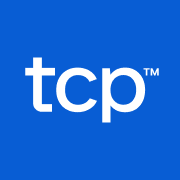When thinking about recruiting and improving our recruitment processes, we as hiring managers and recruiters tend to assume that there are plenty of people looking for jobs. This is a great assumption and may be true at times, however, today the big issue in the US is that we have more jobs than people looking for work.
So, the question is: What can companies do to beat the competition in attracting and hiring the right candidates?
Recruiting poses a number of challenges, especially in the case of start-ups. Start-ups are essentially new to the business of business and must prove that they are the company where a potential candidate wants to work.
In this article, I will focus on some recruiting tips and techniques that I have used for start-up businesses over my extensive career in talent acquisition. These tips and techniques have proven to be effective in existing businesses, and I am confident they will help you in attracting the right candidates for your young organization.

The Role Recruitment Plays in the Success of a Start-up
I have worked for many start-ups in the past, from setting up a full human resources department to hiring first employees. The first positions that are filled in a start-up are key to the success of building an effective and successful team. These roles will ultimately form the foundation and culture of the company.
Keep the company’s mission and vision at the forefront when selecting the best candidates for these initial roles. These two foundational pieces will help choose the people who will define the company’s culture as more people get on board.
As the recruiter, you will need to align yourself closely with the CEO’s talent needs to ensure that the recruiting strategy aligns with the company's mission and value statements. Have ongoing meetings with leadership regarding the first ten hires to ensure you’re on course with expectations and delivering top talent that is valuable to driving the organization forward. The first ten approved hires you make will set the benchmark as the team expands.
Tips and for Start-Up Recruitment
We’re focusing on start-ups here, but (from my experience) whether your organization is young or an established company, certain recruitment challenges always present themselves.
The key to an effective recruitment and hiring process is always to have a robust recruiting strategy. These tips form part of the recruiting strategyI have used in my career. They look at the newness of the business in its budget allocation, brand awareness, and means of targeting a broader audience.

Recruiting Tip 1: Align Your Recruitment Strategy with What Matters to the Company
First things first. Align the recruiting strategy with the company’s mission, values, and goals.
Basing your recruiting strategy on what matters to the company will show the potential candidates that the business is serious about what they have set out to accomplish. Your main hiring objectives should be to find candidates that have instrumental skills and career objectives in line with what the company wants to achieve.
It is imperative that candidates can see themselves working for the company, fulfilling the needs of the company, and refining their skills in the endeavor to meet the company’s goals.
Recruiting Tip 2: Stretch Your Recruitment Budget with Free Tools and Resources
What can be spent to attract talent? Drawing up a budget for recruiting in a start-up can be daunting. With no hiring record, you can know very little about what you need to make the new hires you need.
Your best course of action is to start an honest discussion with the HR director or manager regarding the recruiting budget that is possible for the business. Think in terms of ROI here. Spending budget on tools that reduce time to hire, such as an applicant tracking system (ATS) for example, can result in a saving that trumps the initial expense. However, you’ll need to prove the benefit with ROI projections before you’ll get executive buy-in.
If, like many start-ups, your talent capital budget is low, just keep in mind that there are plenty of talent-searching tools that cost little to no money.
Here are a couple of resources that may help:
- A guide to the best free ATS software available to start-ups
- A list of free recruitment software recommended by SSR’s reviewers
I highly recommend implementing a good ATS and/or recruiting software. Acquiring good HR Tech that allows you to attract, track and hire potential candidates quickly is key to a successful recruiting strategy.
Another way to maximize ROI on a small budget is to hire a fractional CxO, giving you access to executive-level experience for a small number of hours each week.

Recruiting Tip 3: Be Prepared to Rewrite Job Descriptions
Start-ups require a diverse talent pool, ideally consisting of individuals who can cross-function in more than one role. Potential employees you meet with could perfectly fall into a job description you have in mind, or the role might stretch to accommodate the person’s skill set. Naturally, you’ll have a list of must-have experiences, skills, and attributes, as well as a list of things you can be flexible about if the right candidate comes along.
As a company, take a look at all the job descriptions you’re hiring for. Specifically consider the qualifications, transferable skills, education, and language that you must have, and would like to have. Once you’ve done this, rewrite your job descriptions so that your hiring efforts can be laser-focused on prioritizing the skills you need.
Here are a few questions and tips that you can ask yourself when re-writing your job descriptions:
- Are all the qualifications listed in the job description a necessity or niceties? In other words, can they be trainable later?
- Does an individual truly need a college degree to perform the job duties? Outside of formal education, and based on my job description, what skills can be derived from the candidate's work experience? List the technical (hard) skills and soft skills the job will require, such as problem-solving, communication, leadership, and teamwork in your job description’s requirements.
- Be specific in what you need to consider a candidate as viable. For example, if a candidate has ten years of experience in the field I am hiring for, will that be sufficient, or do I still want a qualification to back it up? What if they have fifteen years of experience? I like to always list an alternative to education with years of relevant experience.
- When describing the duties of the job use words like “the applicant or candidate”, and “the ideal applicant or candidate.” These terms are more inclusive to the candidate talent pool and will help the company cast a wider net.
Recruiting Tip 4: Your Employer Brand Already Matters
Employer branding is as important for start-ups as it is for established companies. Your potential employees are sure to research the organization on LinkedIn and other social media channels, so be cognizant of what they’ll find.
Create a website and social media feeds that embody the company’s mission and vision. Showcases the company culture with photos of gatherings, walkthroughs of the office interior, and public employee recognition.
Have current employees write about their experience with the company and post it on the company site or employer referral platforms like Glassdoor. This will lend credibility to the company’s culture and help candidates decide if they can see themselves working there.

Recruiting Tip 5: Push Your Unique Selling Points
What does your company offer that others do not? Your value proposition and work environment will need to stand out from the crowd as the ideal company to be a part of.
- This is where enhanced employee benefits come into play. Make sure your benefits package includes fiscal and non-monetary incentives that your competitors may not offer.
- Most candidates are looking for work-life balance in the form of flexible schedules, hybrid policies, or fully remote work. The less friction working for you causes in their lives, the more likely they will want to do it.
- A lot of knowledge workers place a value on autonomy. Allow them to do what you hired them to do, and get out of their way.
- Job seekers are increasingly looking at company culture as a decision-making aspect of their search. Explain what type of person your company would be a good fit for, and market the career advancement opportunities you offer – is there any room for growth and is that growth evident? Do you value diversity in your hiring decisions?
- Workers no longer accept constant stress and burnout as a part of life. Offering mental health support says a lot about how much you prioritize employee wellbeing. Outline and define your stance on employee wellness on your website and in your job advertisements. This sounds like a major expense, but even free wellness apps like Mindfulness Coach (available for Apple and Android) applied company-wide are a benefit here.
Recruiting Tip 6: Look for Risk Takers
You want to employ great candidates that understand the nature of working for a start-up.
An environment where the only consistent thing is change doesn’t suit everyone, but it is also some people’s ideal. Look at a candidate’s employment history. If they’ve worked for start-ups before, ask interview questions about their experience, what they took from it, and why they left.
If they’ve only worked for established employers in defined roles, don’t let it affect your hiring decision too much, but be upfront about how start-ups are different. It’s better for a candidate to realize they’re a poor cultural fit before you make a job offer than after their first day at the new job.

Recruiting Tip 7: Think Outside of the Recruiting Box
Look for alternative platforms to the usual job posting on the same job boards your competition is using.
Research channels that your ideal candidate will use for networking. This is called passive recruiting. As an example, if you are hiring an electrician, look into what online groups and forums electricians in your area belong to and post your jobs on that platform. This way you’ll target passive candidates who are specifically qualified for the job.
If you are looking for a business manager with a degree, you could utilize university platforms to garner new graduates. Many of these platforms are free which is a great recruiting tool for the start-up business.
Check out Hire Students and Graduates to find great talent straight out of college.
Recruiting Tip 8: Streamline Your Hiring Funnel
Have a look at your interview process. You want it to be thorough, but also really quick.
As I stated earlier, the number of candidates available is fairly less than the number of job openings in the US. According to the Bureau of Labor Statistics, there are about two vacant roles for every unemployed person in the United States. The latest figures published by the the BLS (May 9th, 2023), there are 11.5 million job openings in the United States and 6.0 million unemployed people.
Too often companies make the mistake of thinking they have a lot of time to make a job offer once they have identified the best candidate from an applicant pool. In reality, the candidate is actively looking for employment, so the clock is ticking fast. It is highly likely that they are interviewing for multiple roles at other companies. To hire the right individual, you must work quickly.
Once again, your HR Tech is a differentiator here. Having a good ATS or an overall human resources information system (HRIS) will help streamline your hiring process so that qualified candidates move through your funnel faster and the best talent ends up on your team. Using an ATS helps to automate your hiring process which reduces time to hire and also allows recruiters to identify the best talent with the use of personality and cognitive assessments.
On the other side of the coin, slow interview, hiring, and onboarding processes provide a poor candidate experience which harms your employer brand and compromises the quality of new employees you hire.
To Wrap Up
In designing the best recruitment plan for your business, always keep the company’s mission and value statements at the heart of your recruiting strategy.
Bear in mind that the flexibility and innovative aspects of start-up culture as just as applicable in business decisions as they are in hiring decisions. There is nothing wrong with reassessing and making changes as you go.
Once you have made the perfect hire, retention becomes the next challenge in this cyclical pursuit of talent management. I find the best practice to retain talent is to
- Be transparent
- Recognize and reward hard work
- Offer learning and development programs that are attainable in a short amount of time – certificate programs that enhance employees’ skill sets,
- And offer a good work-life balance with flexible work hours
We can save this topic for another discussion… Happy recruiting!

























